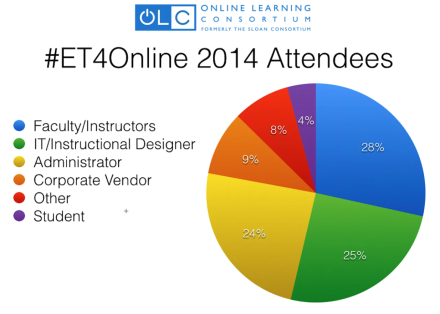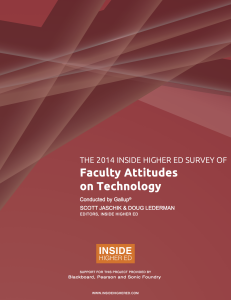 My colleagues and I at NIU were recently notified of the publication of our article, Measuring digital professional development: Analytics for the use of web and social media.
My colleagues and I at NIU were recently notified of the publication of our article, Measuring digital professional development: Analytics for the use of web and social media.
Purpose
As faculty professional development increasingly occurs online and through social media, it becomes challenging to assess the quality of learning and effectiveness of programs and resources, yet it is important to evaluate such initiatives. The purpose of this paper is to explore how one faculty development center experimented with using analytics to answer questions about the use and effectiveness of its web and social media resources.
Design/methodology/approach
The case study was based on direct observation of the center’s practice and review of selected data generated by the analytic tools.
Findings
Unfortunately, while some analytics are available from a variety of sources, they are often distributed across tools and services. The center developed an analytics strategy to use data from Google Analytics and social media reporting tools to assess the use of online and social professional development resources. Initial results show that the center’s online and social professional development resources are widely used, both within and outside the university. However, more work is necessary to improve the strength and scope of the available analytics.
Practical implications
As a result of the analysis, the center has streamlined online resources, targeted social media use, and has begun developing methods to allow faculty to report online resource use as professional development for academic personnel purposes.
Originality/value
Many faculty development centers have not explored methods of evaluating online and social media resources. This paper outlines a strategic evaluation plan to measure the usage of online resources as well as engagement and interaction through social media.
Citation
Rhode, J., Richter, S., Gowen, P., & Krishnamurthi, M. (2015). Measuring digital professional development: Analytics for the use of web and social media. Journal of Applied Research in Higher Education, 7(1), 19-31.




